What is SIM Card Connector?

1.What is the size, current and voltage rating of this connector?
The SIM Card Connector is a small but crucial component used in electronic devices, primarily in mobile phones and other telecommunications devices. This connector is specifically designed to accommodate SIM cards, which are used to store subscriber information and enable cellular communication.
In terms of size, the SIM Card Connector is typically compact and lightweight, ensuring it can fit into the slim and portable designs of modern mobile devices. The standard size of a SIM card is 25 mm x 15 mm x 0.76 mm, and the connector is designed to securely hold and connect the SIM card to the device.
The current and voltage rating of a SIM Card Connector can vary depending on the specific model and manufacturer. Generally, the connector is designed to handle low voltage and low current applications. The voltage rating is typically around 3 to 5 volts, which is the standard operating voltage for SIM cards. The current rating is usually in the range of 0.5 to 1 ampere, although it can vary depending on the specific requirements of the device.
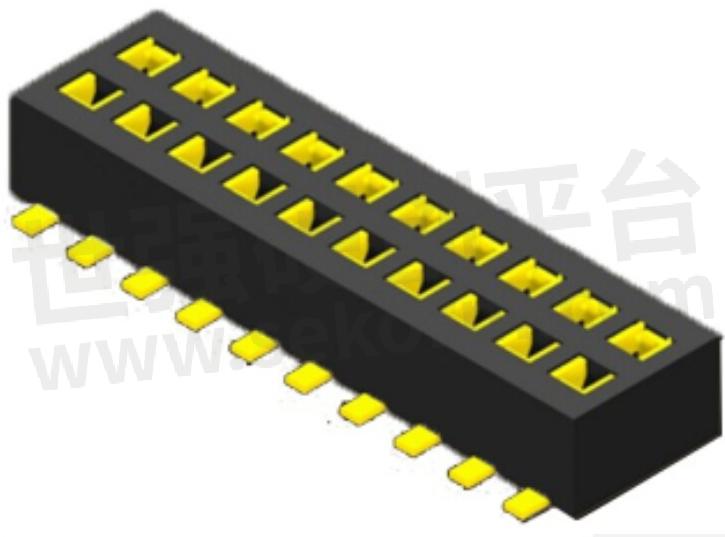

It is important to note that the SIM Card Connector is not only responsible for providing electrical connectivity but also for ensuring a secure and reliable connection between the SIM card and the device. The connector is designed with a series of spring-loaded contacts that exert pressure on the SIM card, ensuring continuous electrical contact and preventing accidental disconnection.
The SIM Card Connector also features a locking mechanism, such as a hinged cover or a sliding tray, to securely hold the SIM card in place. This helps prevent the SIM card from being accidentally ejected or damaged during regular use or transportation.
In addition to mobile phones, SIM card connectors are also used in other telecommunications devices such as tablets, smartwatches, and certain IoT devices. These connectors play a crucial role in enabling seamless communication, allowing users to access their cellular network and utilize various mobile services.
In conclusion, the SIM Card Connector is a small but essential component used in electronic devices for accommodating SIM cards. It ensures a secure and reliable connection between the SIM card and the device, allowing for seamless cellular communication. With its compact size, the connector is designed to fit into slim and portable device designs. The current and voltage ratings of the connector can vary but are typically designed for low voltage and low current applications.
2. Are there different socket types to choose from?
Yes, there are different socket types available for SIM Card Connectors. These socket types are designed to accommodate different sizes and form factors of SIM cards, providing flexibility and compatibility with various devices.
One common socket type is the standard SIM card socket. This socket is designed to fit the traditional SIM card size, which measures 25mm x 15mm x 0.76mm. It features a hinged cover or sliding tray mechanism to securely hold the SIM card in place while providing access to the electrical contacts. The standard SIM card socket is widely used in mobile phones and other devices that require this size of SIM card.
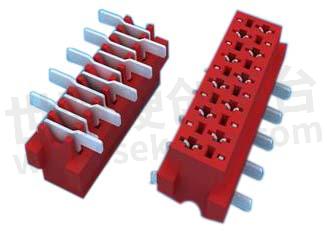
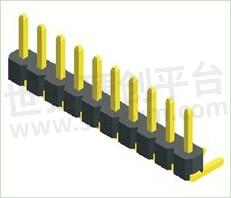
Another socket type is the micro SIM card socket. This socket is specifically designed to fit the smaller micro SIM card size, which measures 15mm x 12mm x 0.76mm. The micro SIM card socket is commonly used in devices that require a smaller form factor and space-saving design, such as certain tablets and IoT devices.
There is also the nano SIM card socket, which is designed for the smallest form factor of SIM cards. The nano SIM card measures 12.3mm x 8.8mm x 0.67mm. Its socket is even smaller and more compact, allowing for integration into slim and compact devices like smartphones, smartwatches, and other wearable devices.
In addition to these standard socket types, there are also hybrid sockets available. These sockets are designed to accommodate multiple SIM card sizes, providing versatility and compatibility with various devices. Hybrid sockets may feature a switching mechanism or multiple contact positions to allow for different SIM card sizes to be inserted and utilized.
It is important to note that the choice of socket type depends on the specific device requirements and the SIM card form factor used. Manufacturers of SIM card connectors offer a range of socket types to cater to different devices and their corresponding SIM card sizes. It is essential for device manufacturers and designers to select the appropriate socket type to ensure compatibility and reliable functionality.
In conclusion, there are different socket types available for SIM Card Connectors, including standard, micro, and nano sizes, as well as hybrid sockets. These socket types are designed to accommodate different SIM card form factors and provide compatibility with various electronic devices. The choice of socket type depends on the specific device requirements, ensuring a secure and reliable connection between the SIM card and the device.
3. Main purposes and application areas
The SIM Card Connector is a crucial component used in a wide range of electronic devices, primarily in mobile phones and other telecommunications devices. Its main purpose is to provide a secure and reliable connection between the device and the SIM card, enabling cellular communication and access to various mobile services.

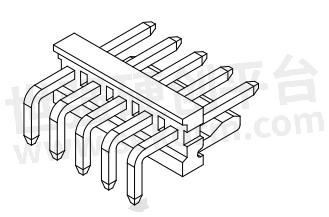
The SIM Card Connector plays a vital role in the telecommunications industry, facilitating the use of SIM cards, which store subscriber information and enable network connectivity. It is widely used in mobile phones, smartphones, tablets, smartwatches, and other portable devices that require cellular communication capabilities.
One of the main applications of the SIM Card Connector is in mobile phones. It allows users to insert their SIM card into the device, enabling them to make calls, send text messages, and access mobile data services. The connector securely holds the SIM card in place and ensures continuous electrical contact between the card and the device, allowing for seamless communication.
In addition to mobile phones, the SIM Card Connector is also used in other telecommunications devices such as tablets. Tablets often have a dedicated slot for SIM cards, allowing users to access cellular networks and use data services on the go. The connector ensures a reliable connection between the tablet and the SIM card, enabling a seamless user experience.
Another application area for SIM Card Connectors is in smartwatches. These wearable devices often have built-in cellular capabilities, allowing users to make calls and receive notifications without the need for a smartphone. The connector securely holds the SIM card in place within the compact design of the smartwatch, enabling seamless cellular communication.
SIM Card Connectors are also used in certain Internet of Things (IoT) devices. IoT devices, such as GPS trackers or connected devices for home automation, may require cellular connectivity to transmit data and communicate with other devices. The SIM Card Connector enables these devices to access cellular networks and establish a connection for data transmission.
Furthermore, SIM Card Connectors are used in various industrial applications, where reliable and secure communication is essential. These connectors ensure a stable connection between the device and the SIM card in harsh environments, allowing for uninterrupted data transmission and remote monitoring.
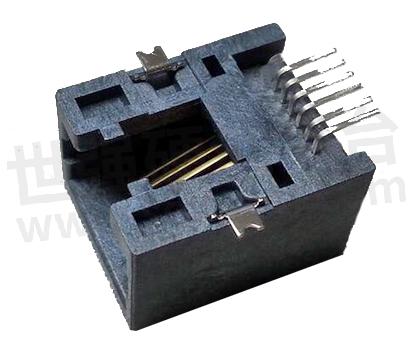

In conclusion, the SIM Card Connector is a vital component used in a wide range of electronic devices, primarily in mobile phones, tablets, smartwatches, and IoT devices. Its main purpose is to provide a secure and reliable connection between the device and the SIM card, enabling seamless cellular communication and access to various mobile services. The connector finds applications in telecommunications, consumer electronics, and industrial sectors, where reliable and secure communication is crucial.
4. How durable and reliable is it?
The SIM Card Connector is known for its durability and reliability, as it is designed to withstand the rigors of everyday use in electronic devices. Manufacturers utilize high-quality materials and advanced manufacturing techniques to ensure that the connector is durable and able to withstand repeated insertions and removals of SIM cards.
One of the key factors contributing to the durability of the SIM Card Connector is the choice of materials. Connectors are often made from materials such as copper alloy, stainless steel, and high-quality plastics. These materials offer excellent mechanical strength, corrosion resistance, and electrical conductivity, ensuring a long-lasting and reliable connection.
To enhance the durability and reliability of the connector, manufacturers also incorporate robust design features. The connector is designed with spring-loaded contacts that exert pressure on the SIM card, ensuring continuous electrical contact and preventing accidental disconnection. The contacts are often gold-plated to improve conductivity and prevent corrosion, further enhancing the reliability of the connection.
The SIM Card Connector undergoes rigorous testing during the manufacturing process to ensure its durability and reliability. These tests include mechanical stress tests, temperature cycling tests, and vibration tests. Additionally, connectors are often tested for their ability to withstand various environmental conditions, such as humidity, dust, and temperature extremes.
Furthermore, manufacturers implement quality control measures to ensure that each connector meets stringent industry standards and specifications. These measures include regular inspections and testing of the connector's electrical and mechanical properties. Any connector that does not meet the required standards is discarded to ensure that only the highest quality connectors reach the market.
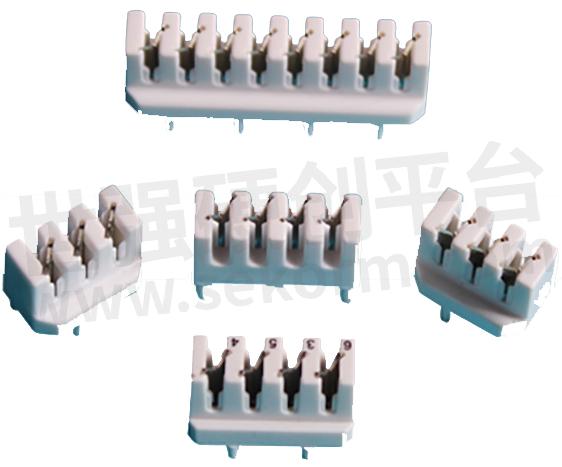
In terms of reliability, the SIM Card Connector has proven to be highly dependable in providing secure and continuous electrical contact between the SIM card and the device. This reliability is essential for ensuring uninterrupted cellular communication and access to mobile services.
The durability and reliability of the SIM Card Connector make it a trusted component in the telecommunications industry. It is designed to withstand the demands of everyday use, ensuring a long service life and consistent performance. Users can rely on the connector to securely hold and connect the SIM card, enabling seamless communication and access to mobile services.
In conclusion, the SIM Card Connector is highly durable and reliable. It is manufactured using high-quality materials and undergoes rigorous testing to ensure its ability to withstand repeated use and various environmental conditions. The connector's robust design features and quality control measures further enhance its durability and reliability. Users can trust the SIM Card Connector to provide a secure and continuous connection between the SIM card and the device, enabling seamless cellular communication.
5. How does it work?
The SIM Card Connector is a critical component that enables the connection between a device and a Subscriber Identity Module (SIM) card. It is designed to securely hold the SIM card in place while establishing electrical contact between the card and the device.
The SIM card itself contains important information, such as the subscriber's identity, mobile services, and contacts. The connector acts as an interface between the SIM card and the device's circuitry, allowing communication and access to cellular networks.
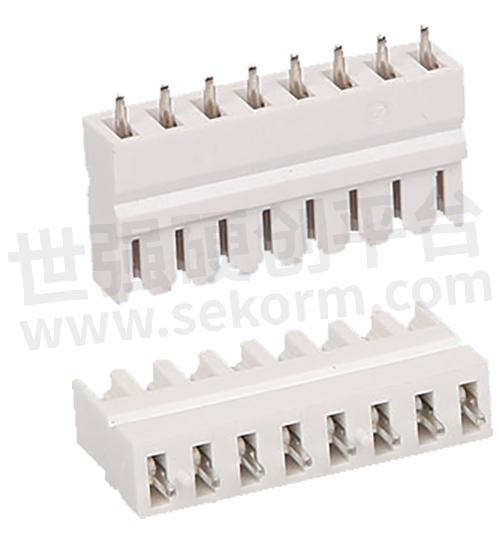
The working principle of the SIM Card Connector involves several key elements. Firstly, there are typically a set of spring-loaded contacts within the connector. These contacts are designed to exert pressure on the SIM card, ensuring a secure and reliable connection. The contacts are often made of durable materials, such as copper alloy, that provide excellent electrical conductivity.
When inserting a SIM card into the connector, the user needs to align the card with the correct orientation. The connector usually has a designated slot or tray that guides the SIM card into the proper position. Once inserted, the spring-loaded contacts press against the metal contact pads on the SIM card, establishing a reliable electrical connection.
The connector also features a mechanism to securely hold the SIM card in place. This can be a hinged cover or a sliding tray design. The mechanism ensures that the SIM card remains firmly in position, even during movement or vibrations, preventing accidental disconnection.
To prevent corrosion and ensure optimal conductivity, the connector's contacts are often gold-plated. Gold's high conductivity and resistance to oxidation make it an ideal choice for providing a reliable electrical connection over an extended period.
In addition to the physical connection, the SIM Card Connector may also incorporate electronic components to enhance functionality. For example, some connectors feature a switch or detection mechanism that can detect the insertion or removal of the SIM card. This enables the device to detect the presence of a SIM card and initiate the necessary communication protocols.
Overall, the SIM Card Connector plays a crucial role in enabling the connection between a device and a SIM card. Its design and functionality ensure a secure, reliable, and durable connection, allowing users to access cellular networks, make calls, send messages, and use mobile data services.
- +1 Like
- Add to Favorites
Recommend
- How eSIM and iSIM Help Unlock Business Value
- The Difference between SIM Card and SD Card
- Insights into The Current State of IoT Security and Practical Advice for Safeguarding IoT Endpoints
- Kinghelm KH-SIM1616-6PIN MicroSIM Card Connector, A Top-tier Self-ejecting MicroSIM Card Connector Featuring 6 Pins
- Yint‘s ESDSR05-4 TVS Meet the Electrostatic Protection Design Of SIM Card Reading Circuit
- Kinghelm KH-SIM1616-8PIN: A Flip-Cover MicroSIM Card Connector for Diverse Electronics
- What You Need to Know About PCB Card Edge Connectors
- Antenk Electronics Appeared in Guangzhou International Intelligent Manufacturing Exhibition with A Series of High-performance Connector Application Solutions
This document is provided by Sekorm Platform for VIP exclusive service. The copyright is owned by Sekorm. Without authorization, any medias, websites or individual are not allowed to reprint. When authorizing the reprint, the link of www.sekorm.com must be indicated.





























































































































































































































































































































































































































































































































































































































































































































































































































































































